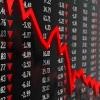MAJOR LIFE CHANGE
#21

Posted 09 April 2009 - 12:43 PM
#22

Posted 09 April 2009 - 12:52 PM
Since you're emotionally down right now, -- IMHO --
I'd take some time to adjust and give a lot of thought before deciding to try "trading for a living". I extremely dislike the words "trading" or "investing" as it is really "gambling".
1) People think it is easy money, but it is the hardest job in the world.
2) Your up against some of the best. Consider trading like a professional sport. A few at the top but most players end up losing money.
3) If you lose a large sum, whether in one hour, one day, or one week, it can have a great emotional impact. Given your situation, can you afford to lose?
4) Prepare to spend a lot of your time. I approx. 12-15 hour days, 7 days a week.
I've been doing this full time since 1994.
If you do decide to trade the best advice I can give is:
You're playing against your own fear and greed as the market doesn't know or care
where you get in or where you get out of a position.
Best of Luck
David
David, this was some of the best, plain, common sense advise I've seen on this board.
#23

Posted 09 April 2009 - 12:56 PM
#24

Posted 09 April 2009 - 01:35 PM
I went thru my life change (got whacked) back in 2000. But I knew it was coming for a long time so I was ready and debt free.
And had enough dough to trade and live without a job for 3 yrs. So if I didn't make it in 3 yrs I'd go back to work. I'm still not working, but that doesn't mean a job wouldn't be nice.
Here's an article I read a wk ago.
Beginning traders and investors are almost universally surprised to hear that trading and investing involves losses. Their view of the markets is skewed and distorted by the barrage of hype, commercials, advertisements and seminars offering instant riches. They see themselves quitting their day jobs and sitting in their pajamas watching red and green lights (or some virtual genie market guru looking over their shoulder) as they make buckets of money every day.
What you are not told in these ads and seminars is that the combination of emotions and money management must be harmonious in order for you to be profitable on a consistent basis and that nothing good comes easy. That's the bad news. The good news is that YOU have absolute control over how that works out, and the secret is in money management. Money management is about how and when you enter the markets and how much you risk at that moment in time. No matter what else is going on, you are in charge of this, the choice is yours and you take full and complete responsibility. It is your brain making that decision.
Trading is among the most challenging of any activities. It means swimming every day in water infested with money- hungry sharks, waiting to devour unprepared and unsuspecting victims. There are always (and I mean ALWAYS) going to be losses. New traders, and even those more seasoned, often fail to grasp this. Losses are personalized, and internalized, leading to a sense of failure, a decrease in self-esteem and an exacerbation of deep-seated shame and guilt. Inexperienced traders equate losses with being a bad person, a failure or just plain stupid.
Seasoned traders see losses as part of doing business, and view each trade as one in a series of probabilities. They set entries, exits and stops and adhere to them religiously. Inexperienced traders do not know how to manage money through managing risk. They do not understand that it is necessary to take calculated risks as part of doing business as a trader. There is always risk. Those who understand this, who embrace it and move with conviction in the face of it, are the ones who will succeed.
How does one do this? First of all, you determine your trading personality (your Money Brain) that then determines your risk tolerance. You decide the amount of money you are going to risk on any trade and the percentage of your capital you are risking. These are decisions you make, based on your analysis and your particular brain structure and function. You absolutely never ever allow the market to determine your risk.
Let me repeat that: YOU determine how much you will risk. You do not allow the markets to determine that for you. In approaching the markets, you realize that so many things are out of your control completely. The market doesn't know you, your rules or anything about you and doesn't care. Having grasped that concept, you do what you can to control what you can control.....YOUR OWN PERSONAL RISK. This is a fantastic opportunity for you to make your own rules and to keep them. If you break your rules you are, in essence, breaking a promise to yourself and being out of integrity with yourself. You are lying to yourself.
Once you master the ability to manage money and risk, you will begin to notice that both your psychological and financial capital is suffering fewer and fewer drawdowns. You stop second guessing yourself, and you stop holding, hoping, incanting to the trading gods or switching plans in mid-stream. You learn that you are very powerful in terms of what you can and cannot or will and will not do. You can never outthink or outsmart the markets, but you can be absolutely brilliant and bring in money consistently by making a plan and sticking with it. If it is working, you stick with it. If not, step away, regroup, rethink and make another plan until you are comfortable with one that resonates with your brain structure and is profitable on a consistent basis.
Making a plan is easy, but sticking with it requires continual self- assessment and taking inventory of your financial and psychological capital at the end of every day. It requires being rigorously honest with yourself about what you have done, how you have stayed with your plan and in what ways you sabotaged your plan. It is absolutely critical to be able to look with radical honesty at your thoughts and actions, and not be afraid to tell yourself the truth. Either you are in financial and psychological draw down or you are not. Numbers and feelings never lie to you. You lie to yourself. How do I know this? I have been there and done that over and over until I was sick and tired of being sick and tired. It didn't work and it didn't feel good.
The only way to manage your risk is to manage yourself and adopt an attitude of laser beam honesty with your trading results at the end of every day. To do anything less is not in the service of your self-esteem, your psychological state or your bottom line. In the end, it's all about the Benjamins. However, the number of Benjamins you win, lose or keep is all about you, your emotions, your attitude and your ability to take a cold, hard and rigorously honest look at yourself every trading day. In money management, perhaps more than in any other aspect of trading and investing, having the courage to face and accept that the truth will truly set you free. It has been said that the truth sets you free, but first it makes you miserable. I assure you that any suffering is worth the rewards. Get real and authentic with the way you manage money and risk, and you will see how quickly you get onto the path of profits.
Chase after the truth like all hell and you'll free yourself, even though you never touch its coat tails… Clarence Darrow
http://www.financial.../2009/0320.html
#25

Posted 09 April 2009 - 01:36 PM
You're getting all kinds of advice. Here's my experience.
The more I think about having to make money to support myself the worse I trade. When I trade without that thought in my mind the better I trade. I have no idea why this is so, and perhaps its just me. Then again, maybe its self-imposed pressure.
I do wish you the best regardless what you choose to do. All I have is a HP Pavilion desktop Samsung flatscreen monitor and a HP Deskjet F4180, with DSL internet service, and a cellphone which I do lots of trading on during the week when I'm away.
BW
I agree 100% BW. I trade much more profitably and consistant while having a fulltime job. The one time I tried trading for a living for a two month period, I was an emotional train wreck and used poor (desperate!) judgement at times, which cost me and I gave this idea up in frustration. Now I trade around my personal training and sales jobs.
Good luck to you and take "baby steps" while trading. If you do this right you can easily and consistently make $400-500. per day in either ES emini trading or ETF's and that nets you $8000-10,000. per month!
KT
#26

Posted 09 April 2009 - 01:41 PM
#27

Posted 12 April 2009 - 08:45 AM
Mark S Young
Wall Street Sentiment
Get a free trial here:
https://book.stripe....1aut29V5edgrS03
You can now follow me on X















